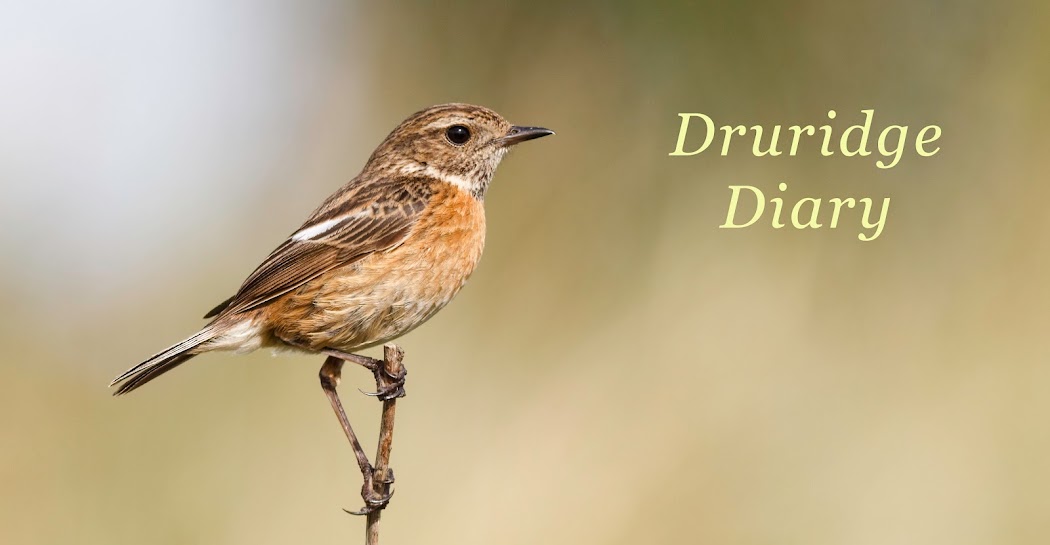If you've read this rubbish since I started writing my blog, you may recall our mission to ring twite and how we have failed miserably for six years. Well today we finally ringed a twite on the Northumberland coast
Our first efforts were concentrated in the National Trust paddock, just to the south of the plantation at Druridge. The NTBC funded us to buy some niger seed with the hope of colour-ringing twite as part of the national scheme. For two winters we baited the area up but couldn't encourage the twite to leave their favoured habitat of the denuded dunes at Hemscotthill, feeding on weed seeds amongst the silage used to feed the over-wintering beast.
Everything else ate the niger, including rooks!
So plan B was hatched when I discovered that Coquet Island holds a twite flock each autumn.
Year 1 - Natural England permission wasn't received before the twite left
Year 2 - It snowed
Year 3 - Every trip aborted because of the weather.
Year 4 - Finally today, we caught our first twite.
 |
| The first twite to be colour-ringed on the Northumberland Coast |
We hope to catch some more before they leave, but even if we don't, please keep an eye open for colour-ringed twite on the coast this winter. We still don't know where our wintering twite breed, so hopefully some more colour-ringed birds might shed some light. Here is Coquet Island lighthouse shedding its own light at dusk tonight.




